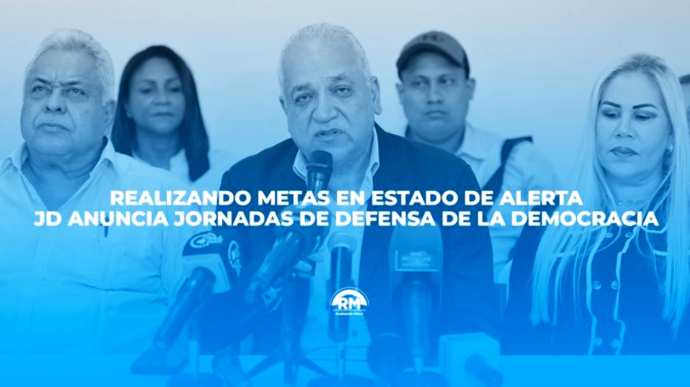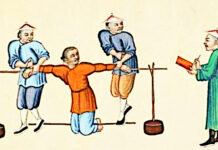When used as toys, sooner or later the courts get sick of it
by Eric Jackson
Ricardo Martinelli ran to the United States to avoid being tried on charges of electronic espionage without a warrant. He lost his long fight against extradition and was sent back to Panama.
There ensued this long soap opera, one key aspect of which was an on and off again and on again game about whether the former president was a member of the Central American Parliament, with the legislators’ immunity from prosecution by the ordinary courts that goes with that. Legislators can be investigated and tried for crimes that they committed, but by the Supreme Court rather than lower tribunals.
Inquiries were made, depositions were taken, documents were collected and collated.
Then, the ex-president changed his tune and wasn’t a parliamentarian anymore, so he got the high court to suspend its process and send the file down to an ordinary trial court. WHICH made the unusual move of throwing out all of the evidence that the Supreme Court had put into the record. The trial court ruled that with the resulting lack of evidence, the wiretapping that happened never happened, or if it did Don Ricky had nothing to do with it. An appeals court upheld the verdict and that was that.
Except that Martinelli is in revenge mode. One of the special targets of his wrath is Kenia Porcell, who was attorney general during most of the Varela years after Martinelli’s shift in the Presidencia, and for a few months into the Cortizo years.
Three and a half weeks into the current administration’s term, on July 24, 2019, while she was attorney general, Porcell was interviewed by journalist Álvaro Alvarado and they talked about the eavesdropping case, then still pending.
In March of the next year, the eavesdropping case closed, Martinelli sued Porcell for calumnia e injuria, this country’s version of the criminal defamation law that’s actually two laws. Calumnia is about false and injurious declarations, roughly analogous to libel or slander in the Common Law jurisdictions, and the truth is a defense. Injuria is about declarations that injure a person’s reputation and the truth is not a defense.
In his lawsuit against Porcell Martinelli sought $1 million in damages. He sought to sequester Porcell’s property before the trial in order to ensure that the judgment would be paid. He got a court to order a $120,000 sequestration but shortly after the court officer showed up at her home in Brisas de Golf Porcell posted a bond that has prevented such things as the removal of her furniture. The former attorney general doesn’t have to sleep on the floor yet, let alone the street.
Then, trial court Judge Ana Zita Rowe threw out Martinelli’s lawsuit on the procedural ground that since it was about something that Porcell said as attorney general, only the Supreme Court had jurisdiction to hear that matter. Martinelli’s lawyer, Alfredo Vallarino, appealed that to the next highest court, which ruled in the ex-president’s favor. Porcell promptly appealed that to the Supreme Court via a petition for constitutional protection (amparo de garantías, in Panamanian Spanish legalese).
The high court, on a fragmented vote – six in favor, two dissents and concurring opinion that supported the result but not the majority’s rationale for reaching it – allowed the amparo. That stays all that happened below, including the sequestration of the former attorney general’s assets, pending final determination of the case.
However, the thinking by which the court decided to accept the case probably resolves the case. Was granting an interview and talking to the press about a pending case part of the attorney general’s job? The magistrates found this, and just about every day you can see the prosecutors spinning their various cases to the press, through their Twitter feed and otherwise. The practice is defended as transparency that preserves public confidence in the justice system.
The expected bottom line is that a prosecutor has immunity for official acts. But perhaps the case may live on to see an exception carved out, an abuse found to negate the presumption of immunity or so on.
The high court upheld Judge Rowe’s procedural ruling. Do not apply Common Law distinctions between procedural and substantive law here – it’s a different system. But attorney Vallarino takes the Supreme Court’s acceptance of this matter as a defeat of sorts, and vows to do what he can to reverse it: “We don’t rule out any jurisdiction, including administrative and international routes,” he told La Prensa.
International routes? With a probable money laundering indictment waiting to be unsealed should Martinelli set foot in the USA again? With Spain investigating him for electronic and otherwise stalking of a once-upon-a-time mistress in the Balearics? Big bad Ricardo Martinelli gets to play his games and win, in any other place than Panama? It does seem far-fetched but you never know.
QUESTIONS raised? Many. How good is the Israeli-based but now US majority-owned NSO electronic spying company’s encryption? Does it beat the US National Security Agency’s surveillance? For decades there have been revelations about what the electronic surveillance of the United States and its closest allies can do – those by no means started nor ended with what Edward Snowden had to tell. US courts have sent people to prison for spying on the USA at Israel’s behest. By decision of the US Supreme Court in Washington, the matter of NSO spying continues to percolate in a lower American venue. Systems and counter-systems on all sides are constantly evolving and improving. There are elaborate defenses set up to avoid “What did you know and when and how did you know it?” sorts of questions. They call it protecting sources and methods.
This reporter estimates – but without hard inside data to prove or refute – that in the NSA archives there is rather specific knowledge about the alleged electronic crimes of Ricardo Martinelli Berrocal. It’s kind of hard to imagine that the US position during the extradition fight with Martinelli was not informed by NSA records.
And as to Martinelli’s long-running legal battles here? This attempt of his to play offense has sputtered, but some far more consequential bribery, graft and money laundering cases are pending against him this year, perhaps leading to his disqualification as a candidate next year. The focus will quickly shift well away from Kenia Porcell.
The main brains of Martinelli’s entourage are circling the wagons in the face of possible disqualifying criminal convictions.
Contact us by email at fund4thepanamanews@gmail.com
To fend off hackers, organized trolls and other online vandalism, our website comments feature is switched off. Instead, come to our Facebook page to join in the discussion.
These links are interactive — click on the boxes













